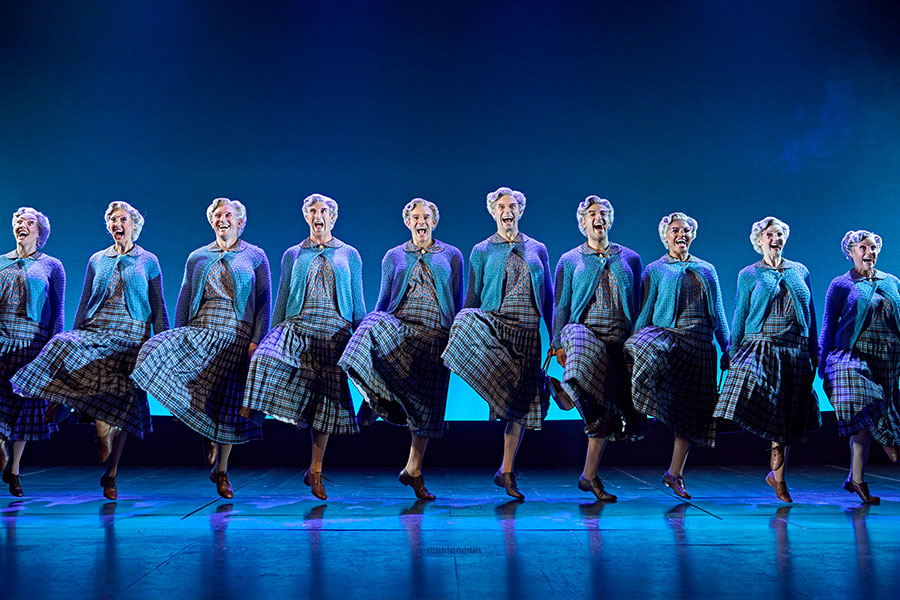Michael Coveney: Pistols at dawn for critics in crisis
Anticipating Sheridan Smith‘s Hedda Gabler at the Old Vic this week, Paul Taylor wrote an interesting survey of other Heddas in The Independent yesterday, though he was too late to include the announcement of a new localised one at the Birmingham Rep next year called Heather Gardner, for which no actress, with or without green fingers, is yet announced.
He also overlooked the famously bad “cut-up” production by Charles Marowitz at the Roundhouse many years ago when Jenny Agutter, very much a Daddy’s girl, seemed to go down on a portrait of the old pistol-toting General; “Hedda Gobbler” James Fenton dubbed it in the Sunday Times. But I certainly agree with Taylor that Fiona Shaw and Eve Best have been outstanding recent Heddas. But Sheridan Smith is unlikely to be cowed by comparisons; she’s such a delightful one-off she’ll find her own way through the role, I’m sure.
Well, that’s all in the immediate future. It was good to see Paul Taylor rolling up to the Orange Tree last Friday night with his old Balliol buddy Charles Spencer, who somewhat alarmingly declared in the first paragraph of his first review for some time that he’d been away for three months suffering from clinical depression.
Unfortunately, the Orange Tree play was about a deeply depressed journalist. When you think about it, most plays are about some form of depression: Hedda Gabler certainly is, so is King Lear opening tonight at the Almeida, and it will be fascinating to see how Spencer plays his overtly confessional style of reviewing with the accumulating disasters of tragic heroes and heroines.
How much information do people really want about their critics? At what point does too much personal information become simply too much information? (Quite quickly, in my view.) Anatole France said that good criticism charted the journey of a soul through masterpieces, and it’s certainly true that the greatest critics always reveal themselves through their writing, even if they don’t make a song and dance about it. Harold Hobson, for instance, never harped on his physical disability (he had polio from a very young age) or indeed his related religious conviction as a Christian Scientist. But every paragraph betrayed him.
We live in an age of self-proclamation in pursuit of both therapy and self-justification, and you’re thought weird or old-fashioned if you don’t join in. I think it’s good to talk about yourself as a critic in relation to the job in hand – as Paul Taylor himself did when reviewing Mark Haddon‘s play about an acutely depressed woman; he came out as bipolar – but to just bandy your personal details around is either far too honest, or far too vulgar, or both; or simply symptomatic of some deeper-lying problem anyway.
I don’t think courage comes into this. It’s more to do with a cry for help. And it’s always more entertaining if the self-advertising instinct is harnessed to a rhetorical or argumentative function.
Take Boris Johnson, for instance. The Mayor of London is an incorrigible, big-headed show-off, an unattractive quality he has re-directed for the public good and his own self-advancement but with the approval of vast numbers of people.
His speech at the end of the Olympic parade yesterday was both electrifying and hilarious. He was like Mark Antony following the others – and here, the others were David Cameron and Princess Anne – at the burial of Caesar, seizing the moment, turning the crowd and walking away with the spoils. It was an absolutely stunning performance, one that many commentators think will propel him towards the leadership of the Conservative Party.
People respond to Boris’s brutal charms and blustering, bovine eccentricity in much the same way as they respond (negatively) to the wishy-washy niceness and intellectual blandness of David Cameron.
So, I’m girding my loins for King Lear tonight. But, to take a leaf out of my confessional colleagues’ book for once, I may not make it, as my father is at death’s door in hospital, coming to the end of a very long life and a very long illness.
I don’t have the same relationship with him as I did when I was a boy – he’s not the sort of man who ever demonstrated much love or affection; a bit like me, in fact – but his demise has been pathetic beyond words, and I don’t see myself up to playing much of a Cordelia tent scene with him in the last act when the call comes.
As he’s already told me, he didn’t want it to end like this, in acute discomfort, in a miserable old folks’ home, unable to walk, or care for himself. He should have been offered the exit option. As a Catholic, of course, in his case, that option would never have been approved by my mother or his priest. But he’s had no life at all for a couple of years. He’s not even had any fresh air.
The deaths of very old people in hospital, as we all know, is often induced by authorised starvation. Our clinging to the belief that people like Tony Nicklinson – the man with locked-in syndrome who was refused the right to an assisted death – may not end it themselves is hypocritical, inhumane and and revolting. The poor man starved himself to death anyway. Didn’t he deserve a last wish as well as a last supper?










